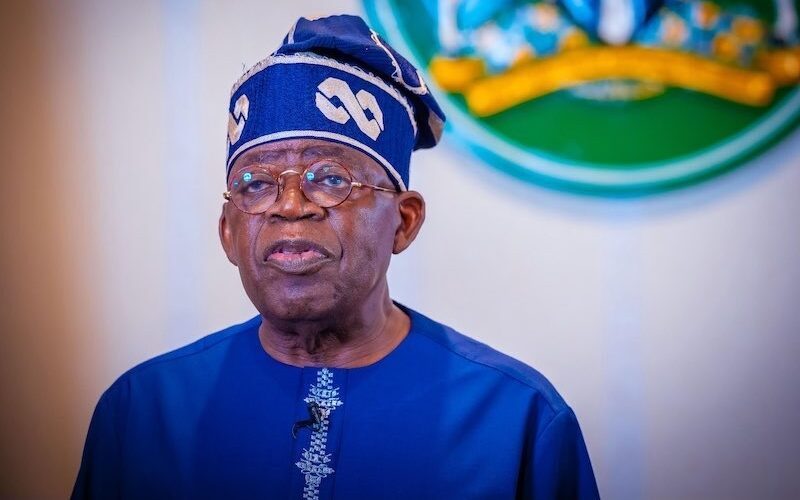Cardoso: Building Custodians of Nigeria’s Economic Future, Imperative
Cardoso: Building Custodians of Nigeria’s Economic Future, Imperative
Every reform era must eventually face a defining question: who will protect its gains once the headlines fade? For the Central Bank of Nigeria (CBN), that question took centre stage last Friday at the Lagos Business School, when the CBN Governor Olayemi Cardoso addressed hundreds of students in a landmark fireside chat.
It was not a technical seminar on monetary policy. It was a dialogue about continuity, a call to Nigeria’s youth to understand that stability is not just a statistic but a national mindset.
The inaugural CBN Governor’s Annual Lecture Series, themed ‘Next Generation Leadership in Monetary Policy and Nation Building’, represents the evolution of what can best be described as the Cardoso Doctrine: a return to discipline, transparency, and credibility as the architecture of economic leadership, and now, a deliberate effort to socialise stability by embedding it in the next generation.
When Cardoso assumed office in September 2023, Nigeria faced what he later described as a “crisis of confidence”. Inflation was climbing, the foreign exchange market was dysfunctional, and investor trust had eroded. In response, the CBN pivoted sharply towards orthodox monetary policy, curbing deficit financing, tightening liquidity, unifying exchange rates, and publishing long-suppressed financial statements.
Two years later, those reforms have stabilised the naira, attracted new capital inflows, and restored global confidence in Nigeria’s economic management. But for the governor, these technical victories are only half the story. Reform must become culture, and culture begins with people. “Without stability, the things you are asking about can’t happen,” he said. “You can wish them to, but serious investors will run away.”
That statement, delivered not to economists but to aspiring leaders, crystallised a profound idea: stability is not the task of central bankers alone; it is the civic duty of every generation that benefits from it.
Cardoso’s insistence on collective stability is not rhetorical; it is strategic. By turning policy into dialogue, the CBN is nurturing a generation that views economic discipline as a shared value rather than an imposed constraint. This is leadership reframed, from bureaucratic oversight to mentorship in stewardship.
For decades, Nigeria’s financial narrative has oscillated between crisis and recovery. The CBN governor’s vision is to replace that cycle with a culture of consistency, where transparency and trust are not exceptions but expectations.
The students at the lecture, drawn from Pan-Atlantic University, the University of Lagos, Lagos State University and Yaba College of Technology, represent the vanguard of this new culture: future entrepreneurs, policymakers, and civic actors who will inherit both the tools and the temperament of reform.
“Why should people deal with all the difficulties of running a business and have instability added to it?” he asked. “That is our work. If we fail in that, we fail in being an effective central bank.” Cardoso’s reflection on Nigeria’s transformation was as candid as it was instructive.
“Two years ago, people were not looking to exit through the door but through the window,” he recalled. That imagery captured a nation’s exhaustion. Today, the story is shifting. Investor confidence is returning, the credit outlook has improved, and Nigeria’s presence in global financial circles is again marked by credibility. The governor referenced a recent visit by BlackRock leadership as symbolic proof that consistency breeds confidence.
For the students listening, these were not statistics; they were evidence that leadership grounded in credibility can turn despair into momentum. When asked about the future of central banking, Cardoso did not hesitate: “Digitisation and AI will be key to the future effectiveness of any central bank.” Under his leadership, the CBN is not only modernising systems but redefining governance through technology. The move to a paperless office, the introduction of an electronic FX matching platform, and the use of AI-driven oversight all signal a forward-looking institution that sees transparency as both technological and ethical.
For young Nigerians entering business, fintech, or public service, technology becomes the bridge between access and accountability. In a country where opportunity has too often depended on proximity, open data and digital systems are the great equalisers. By linking innovation to integrity, the governor is teaching that the digital future must be a disciplined one, powered by inclusion, not indulgence.
Perhaps the most powerful moment of the session came when he set aside charts and policies and spoke directly about personal character. “Protect your hard-earned credibility,” he told the audience. “It will take you very far. Without it, you cannot reach what you aspire to.”
In those words lies the heart of his leadership philosophy: credibility is both the currency of institutions and the compass of individuals. He warned against discouragement, recalling how the CBN itself faced formidable headwinds at the start of its reform drive. “The headwinds come from places you least expect,” he said. “But you must have the courage and the strength of character to stay the course.”
For a generation often impatient for quick results, that was a timeless reminder: resilience is reform’s most underrated virtue.
Every generation inherits a balance sheet of assets, liabilities and lessons. The greatest of these assets is credibility, a resource painstakingly rebuilt over the past two years. Through the governor’s Lecture Series, the CBN is institutionalising credibility as a public value, transforming monetary stability from a technocratic goal into a social ethic.
And that is where the true opinion lies: Nigeria’s biggest economic risk is not inflation or exchange rate volatility, it is institutional amnesia. The inability to preserve credibility once it has been restored is what has historically undone the country’s economic progress.
The Cardoso Doctrine seeks to break that cycle by creating custodians, not just beneficiaries of stability. As the governor concluded, when asked to describe Nigeria’s future in one word, he replied simply: “Bright.” That optimism is not rhetorical; it is earned, forged through discipline, transparency and the conviction that the next custodians of Nigeria’s economy are already in the room, learning how to protect what has been rebuilt.
In that sense, the Cardoso’s doctrine is more than a set of policies; it is a philosophy of continuity, one where stability is not only achieved but taught, shared, and safeguarded by a generation prepared to lead with credibility at its core.
Every reform era must eventually face a defining question: who will protect its gains once the headlines fade? For the Central Bank of Nigeria (CBN), that question took centre stage



